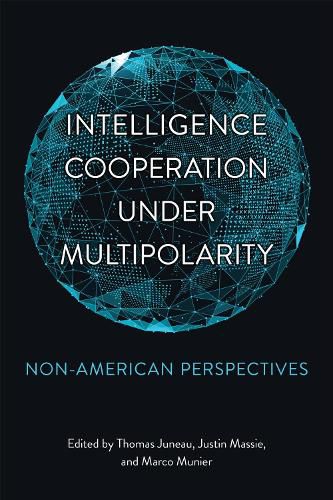Readings Newsletter
Become a Readings Member to make your shopping experience even easier.
Sign in or sign up for free!
You’re not far away from qualifying for FREE standard shipping within Australia
You’ve qualified for FREE standard shipping within Australia
The cart is loading…






While counter-terrorism has been the primary focus of the defense and national security policies of major Western states in the last two decades, recent years have seen the re-emergence of states as the major threat.
Intelligence Cooperation under Multi-Polarity offers a timely analysis of the challenges and opportunities for intelligence cooperation, characterised by the re-emergence of great power competition, particularly between the United States, China, and Russia. This collection explores foreign policy and national security tools and partnerships that have emerged as the United States, typically an international leader, experiences internal and external shocks that have rendered its role on the international stage more uncertain. The book specifically focuses on non-American perspectives in order to understand how America's allies and partners have adjusted to global power transitions. Drawing on contributions from leading intelligence and strategic studies scholars and professionals, Intelligence Cooperation under Multi-Polarity aims to broaden and deepen our understanding of the consequences of the power transition on national security policies.
$9.00 standard shipping within Australia
FREE standard shipping within Australia for orders over $100.00
Express & International shipping calculated at checkout
Stock availability can be subject to change without notice. We recommend calling the shop or contacting our online team to check availability of low stock items. Please see our Shopping Online page for more details.
While counter-terrorism has been the primary focus of the defense and national security policies of major Western states in the last two decades, recent years have seen the re-emergence of states as the major threat.
Intelligence Cooperation under Multi-Polarity offers a timely analysis of the challenges and opportunities for intelligence cooperation, characterised by the re-emergence of great power competition, particularly between the United States, China, and Russia. This collection explores foreign policy and national security tools and partnerships that have emerged as the United States, typically an international leader, experiences internal and external shocks that have rendered its role on the international stage more uncertain. The book specifically focuses on non-American perspectives in order to understand how America's allies and partners have adjusted to global power transitions. Drawing on contributions from leading intelligence and strategic studies scholars and professionals, Intelligence Cooperation under Multi-Polarity aims to broaden and deepen our understanding of the consequences of the power transition on national security policies.